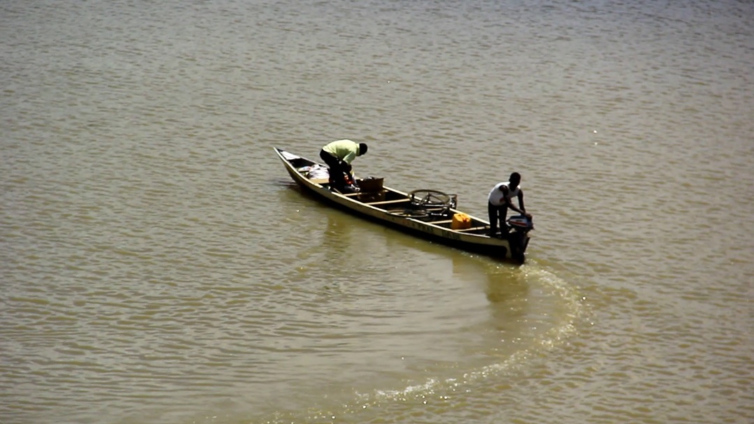The Black Volta, considered to be one of the most important rivers in the country, has now become the waste hub and cartage for fecal matter for some residents of Buipe in the Savannah Region.
Buipe which means to ‘hold tight’ is the capital of the Central Gonja District.
Due to its proximity to limestone deposits, the once small town has been recommended to be the best location for cement works.
However, with the rapid population growth, social amenities including, segmented waste collection centres and toilet facilities have not been met.
This has caused the residents to seek other substitutes to meet certain needs. The resourceful river has been subjected to these uncultured alternatives.
For most of them, getting rid of liquid and solid waste remains the most important preoccupation.
"Once the river moves, it will sweep the dirt away,” a resident retorted.
But the practice of dumping refuse in the river and defecating on its banks does not only pose a threat to individuals whose livelihood depends on the water body but also the aquatic life in it.
Polluting one of the major sources of water exposes consumers to disease-causing organisms. It stifles the existence of nature and threatens the livelihoods of hundreds of local fisher folks.
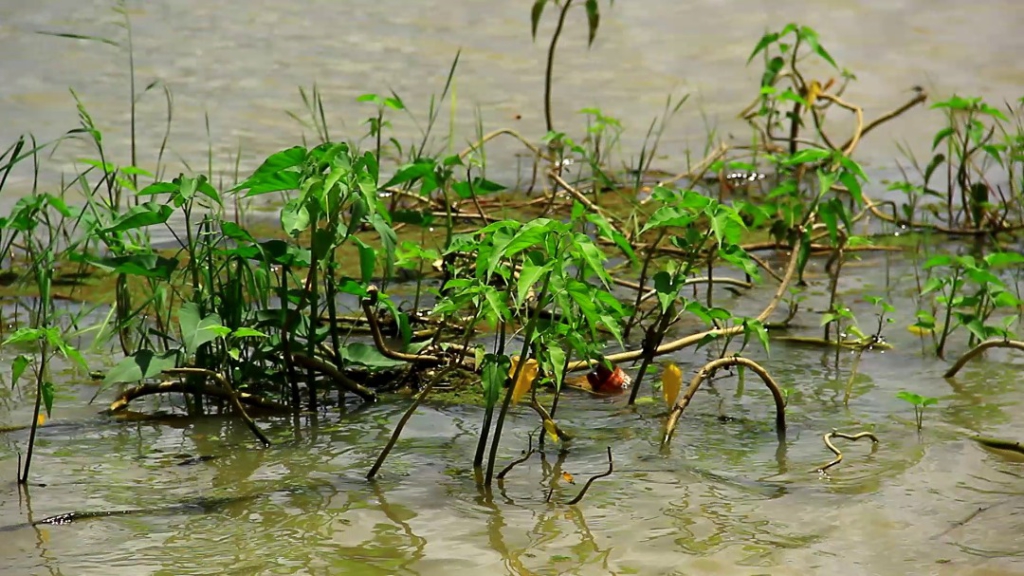
With the rapid decline in fish stock, some of them are forced to find other options to earn an income.
Unlike in times past when many canoes paddled on the lake, one or two are seen all day with little fish.
32-year-old Andrew Anthony and his colleague, Ibrahim Mohammed have been fishing on the Black Volta since childhood.
According to them, things are not the same like it used to due to the waste the river has been exposed to.
“We used to make about GH₵2,000 in a month and during the rainy season, we catch plenty of fish and make a lot of money. But now we don't get anything, even when we make a catch, we earn little; such that we cannot afford our daily meals,” said Andrew.
“We are making few catches during the recent rains, and we don't know what the future holds for us."
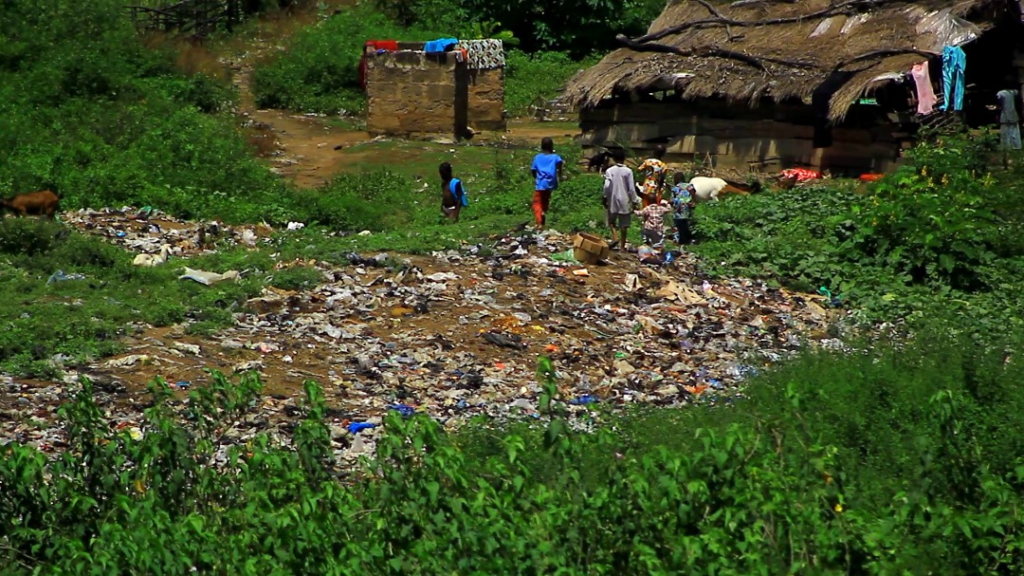
One of their customers, Eunice Sekpe, is the only one who goes to the river bank to buy. But what she gets is nothing to write home about.
"In the past, they were able to catch a lot for us to buy, but these days what they bring to us is not sufficient," she said.
The river is not only used for fishing, it is also consumed and used for domestic chores by some residents.
Making hygienic water accessible to all means substantially improving the living conditions of life of all citizens, particularly the poor.
But in some ways, some residents living around the Black Volta are compelled to treat the polluted water before they drink.
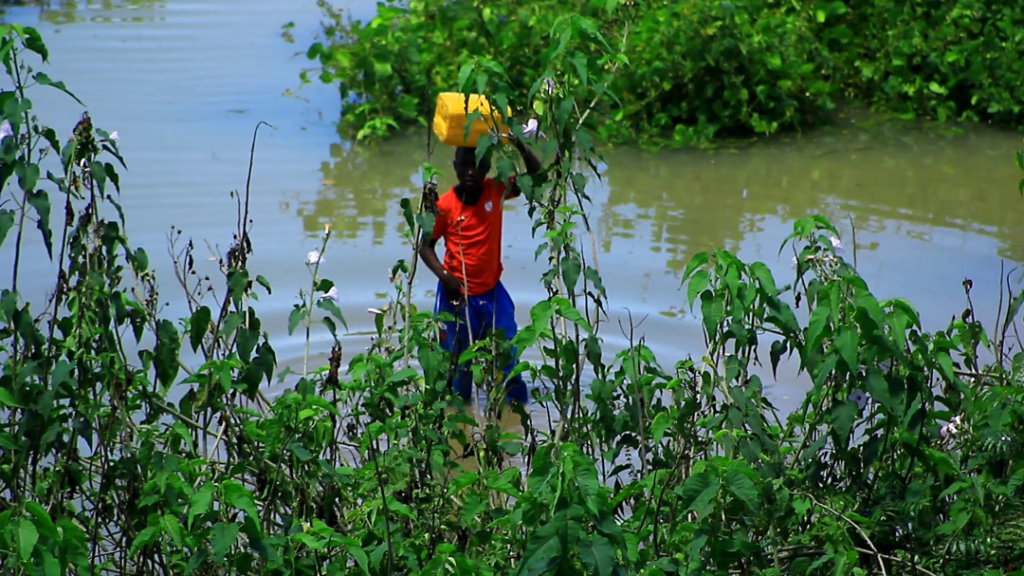
This raises questions about how natural water resources and aquatic ecosystems in the country are properly protected or conserved.
Apart from its impact on the livelihoods of fisher folks and residents, the increasing growth of algae shows that it suffers from bad human influence.
Scientists say the spread of algae in the river affects the entire ecosystem.
Consequences range from the benign feeding of higher trophic levels to more harmful effects such as blocking sunlight from reaching other organisms, causing a decrease in oxygen levels in the water, and depending on the organism, secreting toxins into the water.
According to a Lecturer at the Physics Department of Kwame Nkrumah University of Science and Technology, Dr Emmanuel Quansah, certain nutrients among other factors promote and support the growth of algae.
"The nutrient enrichment is seen as an important factor. The most important that contributes to this enrichment are phosphorus and nitrogen," he indicated.
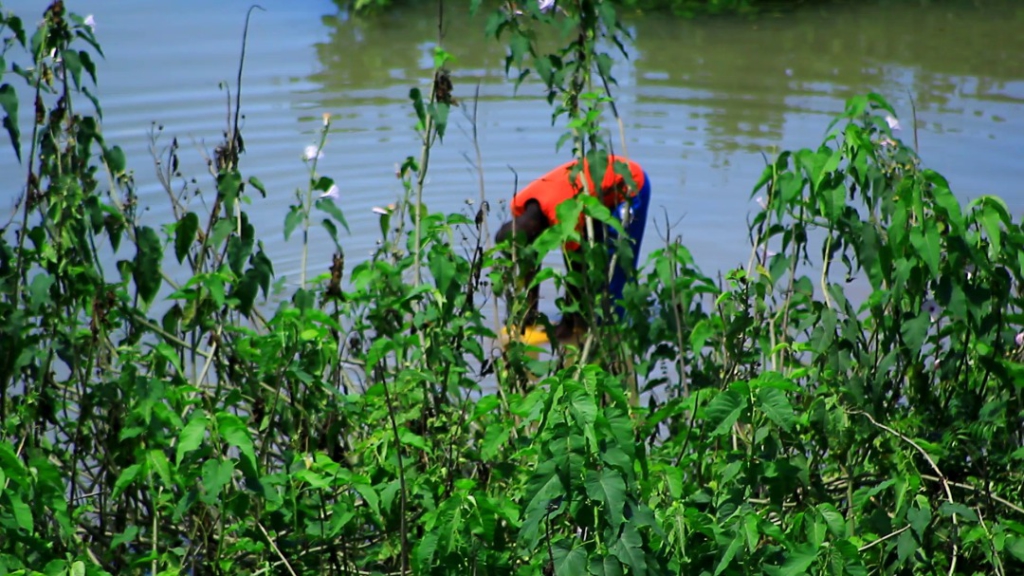
Dr Quansah says that runoff, soil erosion from fertilized agricultural areas, among others are the major sources of phosphorus and nitrogen entering the water ways.
Many farmers who farm along the banks of the river apply fertilizers excessively to their crops.
31-year-old Samuel Kwabena Dabah says he applies 40 bags of NPK to his six plots of land anytime he farms.
"I have to apply the fertilizer to allow my crops to flourish. I use a normal spoon to measure. What I do is to apply so that it will grow faster before the river begins to overflow," he said.
However, the internal source of phosphorus and nitrogen could also come from sediments.
Giving more explanation, Dr Quansah said when phosphate attaches to sediments and dissolved oxygen concentration is low in the water – anoxic, sediments release phosphate into the water column. According to scientists, this phenomenon favors the growth of algae.
Other factors including higher temperatures and higher light intensity could support the growth of algae.
The more algae and plants sprout, the more other living organisms in water bodies die.
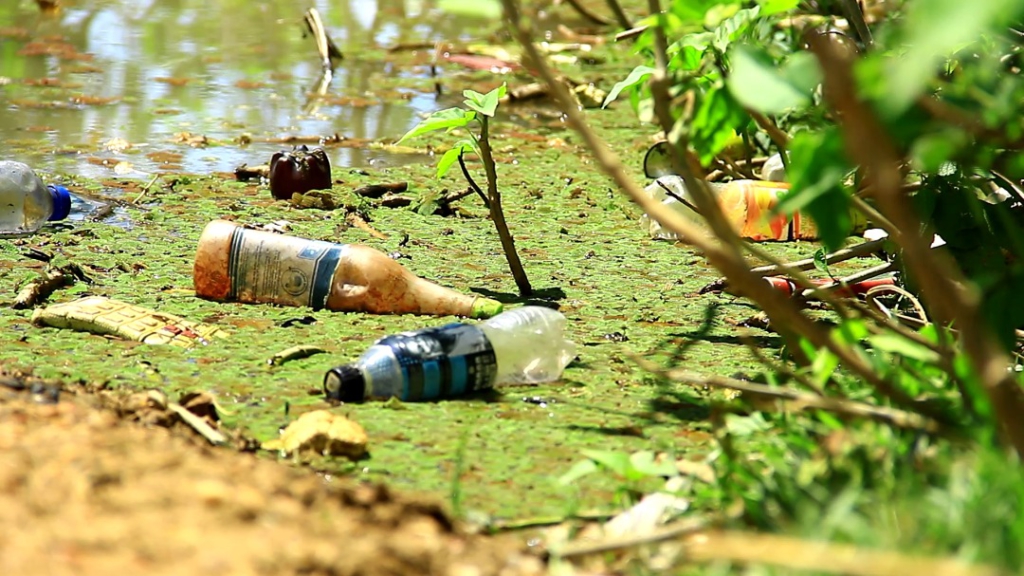
This dead organic matter turns into food for bacteria that decompose it. With more food available, the bacteria increase in number and use up the dissolved oxygen in the water.
As dissolved oxygen content is reduced, many fish and aquatic insects cannot survive.
Algal blooms, according to environmental pollution lecturer, may also be of concern, since some species of algae produce neurotoxins.
“At the high concentrations of cells affected by some blooms, these toxins can have serious biological impacts on wildlife,” said Dr. Quansah.
In recent months, water levels of the river have not only declined, but they have also changed from crystal clear to multi-colored.
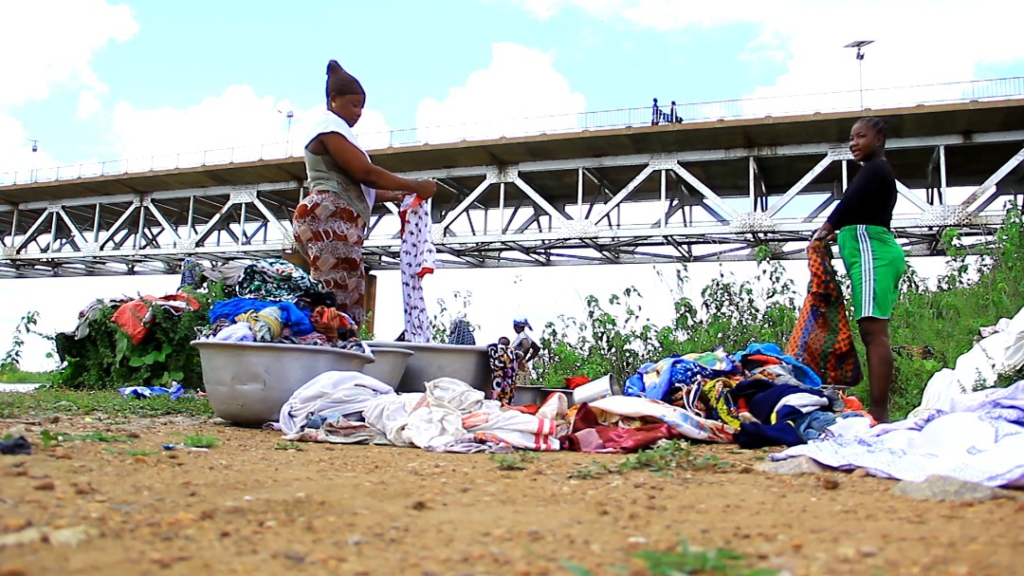
Women also wash clothes along the banks to raise money for their livelihoods.
An Associate Professor of Fisheries at the Department of Fisheries and Aquaculture at Kwame Nkrumah University of Science and Technology, Prof. Daniel Agyei Boateng explained that when the water is brown, the sediments cover the eggs of fishes and therefore cannot hatch, which affect their reproduction.
"When chemicals enter the water, they kill the fish, so pollution has a huge effect on the decline of fish," he said.
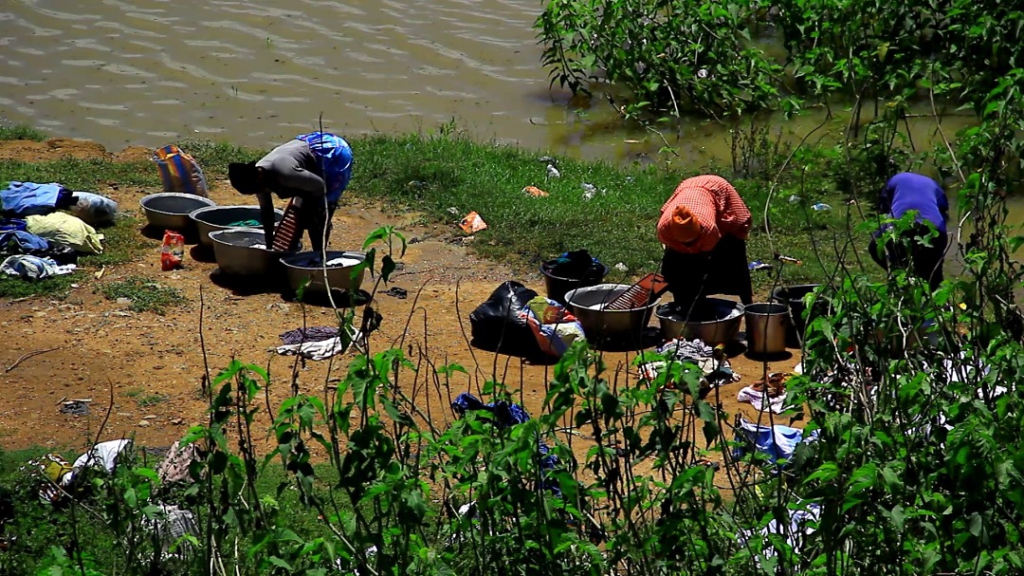
According to Professor Boateng, once the fishes are unable to see the natural food they feed on due to pollution, it affects their growth.
He further explains that continuous washing into the river would lead to the leaching of chemicals from soaps into the water that also serves as a source of pollution.
"Ideally, direct washing and use of detergents and soaps should not be encouraged because they accumulate and affect the fish stock," he noted.
Professor Boateng explained that when it rains, and water washes fecal matter along the banks or watershed into the river, organic loads increase and decomposition of the fecal matter leads to the depletion of oxygen from the water which has direct effect on the fish.
"This condition can kill young fishes," he lamented.

The Central Gonja District Assembly has been advised to activate its by-laws to stem the tide.
"The district assembly must enforce its by-law to stop washing and open defecation along the banks," said Prof Boateng.
Fish alone supplies about 60 percent of protein needs, which is why Prof Boateng would like to see some action taken immediately.
Aside from protein, fisheries and aquaculture offer many opportunities to reduce hunger, poverty, generate economic growth and ensure that natural resources are better used.
Water pollution remains a major challenge in today’s world and addressing it has become an absolute priority for sustainable development.
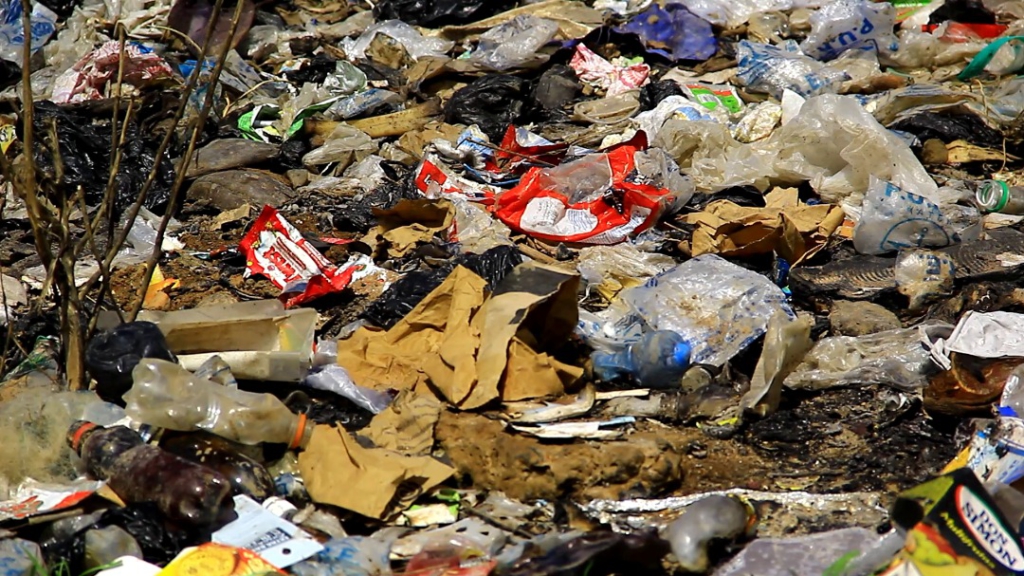
The 2030 Agenda for Sustainable Development puts water quality issues at the center of international action by setting a specific SDG 6 goals: ensuring availability and sustainable management of water and sanitation to meet urgent challenges posed by water pollution.
However, pollution through open defecation along the river banks, and washing of clothes could continue to reduce fish stocks for future generations.
District Chief Executive for Central Gonja, Mahama Mustapha, says it has become difficult to prevent residents from dumping plastic waste into the river.
Though residents have been sensitized on the importance of preserving the river, residents have paid no heed. More worrying is the location of the river to the market where many traders indiscriminately dump waste into the river.
The local assembly agrees there is a lot to be done to change the narrative since the issue is more about behavioral change.
Latest Stories
-
The Conscience of Leadership: A call to President Akufo-Addo on Ghana’s environmental devastation
4 mins -
Ghanaian youth unaware of their right to hold politicians accountable – Youth Bridge Foundation
56 mins -
Judge delays Trump sentencing for a third time
1 hour -
2024 WAFCON: Ghana drawn against defending champions South Africa in Group C
2 hours -
Photos from DW-JoyNews street debate on ‘galamsey’
2 hours -
Mimmy Yeboah: Blending heritage with global sophistication, confidence redefined through couture
3 hours -
100 Most Influential People Awards 2024: Brain Hill International School’s Director Mary Anane Awuku honoured
3 hours -
Akufo-Addo commissions 97-km Tema-Mpakadan railway line
3 hours -
Majority requests recall of Parliament
3 hours -
Kanzlsperger and Professor Quartey support WAFA with medical Donation
3 hours -
Gideon Boako donates 10 industrial sewing machines to Yamfo Technical Institute
4 hours -
‘Golden Boy’ Abdul Karim Razak honored at WAFU-B general assembly
4 hours -
Buipewura Jinapor secures Vice Presidential position in National House of Chiefs with record votes
4 hours -
2024 election: I want results to come out like ‘milk and honey’ – Toobu
4 hours -
Ghana’s Henry Bukari hands over chairmanship of ECOWAS Brown Card Council of Bureaux
4 hours

